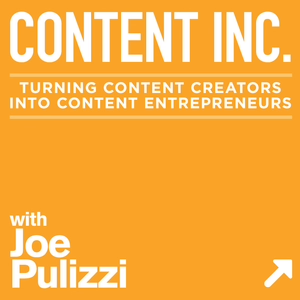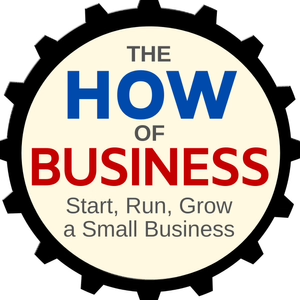
Anti-Trafficking, Christian Supremacy and the Rescue Industry
10/14/21 • 84 min
2 Listeners
Human trafficking is a complex issue with layers of deep seated power structures influencing the way we both understand and think about trafficking. All too often, the narratives we read and share fail to capture the nuance that makes this industry so complex. The images we see are compelling -- those of young women, mostly women of color in the Global South, looking weak and disempowered. Their stories, often told through a translator, are powerful and typically follow the same storytelling structure, subconsciously etching stereotypes of communities and cultures into our psyches. Those stories coupled with a call to action pull at our heart strings, captivating our attention and compelling us to either donate or buy a product in hopes that we too can feel like heroes, saving these poor women from modern day slavery.
During the last episode, host Manpreet Kaur Kalra spoke with Madina Wardak about the ways in which the global narratives about Afghan women perpetuate harmful stereotypes that deny any form of agency. We see these same themes play out in conversations surrounding the anti-trafficking industry. From refugee resettlement efforts to anti-trafficking organizations, often “doing good” centers the “hero,” all while continuing to sideline the voices of those who are being “saved.” This puts the “savior” up on a pedestal while turning those whose stories are being used into nothing more than a metric with a marketable soundbite. The blatant stereotypes that are often perpetuated by anti-trafficking organizations reinforce the pervasive assumption that women of color are oppressed by using terms such as “rescuing” or “saving,” which take power and agency away from the individual. With a hyper-fixation on sex trafficking, anti-trafficking organizations often fail to recognize the many other forms of trafficking that exists, including forced labor.
A lot of the narratives surrounding Human Trafficking upheld by the Rescue Industry are influenced deeply by the work of Nicholas Kristof, a Pulitzer Prize winning NY Times journalist and the author of many do-gooders’ bible, “Half the Sky." His reporting, writing, and stereotypical interpretations of human trafficking have not just influenced the narratives within the industry, but have also inspired many to start social enterprises, especially those dedicated to addressing trafficking.
During Episode 15 of Art of Citizenry Podcast, Manpreet Kaur Kalra is joined by Rachel Faller, the co-creator of zero-waste fashion brand, tonlé. Together, they deconstruct the ways in which the anti-trafficking industry is a perpetuation of Christian supremacy, rooted in imperialistic and colonial power structures that further the belief in Euro-American superiority.
Rachel Faller is an entrepreneur by trade and a creative at heart. She dedicates most of her time to rectifying harm within the garment industry using a systemic approach- encouraging people to think about the root of systemic injustice and tackling these issues at their core rather than simply treating the symptoms. Rachel is a co-creator of tonlé – a zero waste, ethical and sustainable fashion line that is both a brand and a manufacturer. Rachel is also a co-founder at Reclaim Collaborative. Rachel’s personal and community care practices include crafting, painting, mending, gardening, and foraging.
Art of Citizenry is a community supported podcast dedicated to decolonizing storytelling. Please consider supporting by visiting: patreon.com/manpreetkalra
For more, you can find the full show notes of every episode at https://www.artofcitizenry.com/episodes
Thank you to our producer, Aly Honoré, and editor, Noah Kowalski.
The music featured in the podcast was created by Katrina Zemrak
Human trafficking is a complex issue with layers of deep seated power structures influencing the way we both understand and think about trafficking. All too often, the narratives we read and share fail to capture the nuance that makes this industry so complex. The images we see are compelling -- those of young women, mostly women of color in the Global South, looking weak and disempowered. Their stories, often told through a translator, are powerful and typically follow the same storytelling structure, subconsciously etching stereotypes of communities and cultures into our psyches. Those stories coupled with a call to action pull at our heart strings, captivating our attention and compelling us to either donate or buy a product in hopes that we too can feel like heroes, saving these poor women from modern day slavery.
During the last episode, host Manpreet Kaur Kalra spoke with Madina Wardak about the ways in which the global narratives about Afghan women perpetuate harmful stereotypes that deny any form of agency. We see these same themes play out in conversations surrounding the anti-trafficking industry. From refugee resettlement efforts to anti-trafficking organizations, often “doing good” centers the “hero,” all while continuing to sideline the voices of those who are being “saved.” This puts the “savior” up on a pedestal while turning those whose stories are being used into nothing more than a metric with a marketable soundbite. The blatant stereotypes that are often perpetuated by anti-trafficking organizations reinforce the pervasive assumption that women of color are oppressed by using terms such as “rescuing” or “saving,” which take power and agency away from the individual. With a hyper-fixation on sex trafficking, anti-trafficking organizations often fail to recognize the many other forms of trafficking that exists, including forced labor.
A lot of the narratives surrounding Human Trafficking upheld by the Rescue Industry are influenced deeply by the work of Nicholas Kristof, a Pulitzer Prize winning NY Times journalist and the author of many do-gooders’ bible, “Half the Sky." His reporting, writing, and stereotypical interpretations of human trafficking have not just influenced the narratives within the industry, but have also inspired many to start social enterprises, especially those dedicated to addressing trafficking.
During Episode 15 of Art of Citizenry Podcast, Manpreet Kaur Kalra is joined by Rachel Faller, the co-creator of zero-waste fashion brand, tonlé. Together, they deconstruct the ways in which the anti-trafficking industry is a perpetuation of Christian supremacy, rooted in imperialistic and colonial power structures that further the belief in Euro-American superiority.
Rachel Faller is an entrepreneur by trade and a creative at heart. She dedicates most of her time to rectifying harm within the garment industry using a systemic approach- encouraging people to think about the root of systemic injustice and tackling these issues at their core rather than simply treating the symptoms. Rachel is a co-creator of tonlé – a zero waste, ethical and sustainable fashion line that is both a brand and a manufacturer. Rachel is also a co-founder at Reclaim Collaborative. Rachel’s personal and community care practices include crafting, painting, mending, gardening, and foraging.
Art of Citizenry is a community supported podcast dedicated to decolonizing storytelling. Please consider supporting by visiting: patreon.com/manpreetkalra
For more, you can find the full show notes of every episode at https://www.artofcitizenry.com/episodes
Thank you to our producer, Aly Honoré, and editor, Noah Kowalski.
The music featured in the podcast was created by Katrina Zemrak
Previous Episode

Dismantling the Victimization of Afghan Women with Madina Wardak
White feminism is built on centering Euro-American so-called progressive views as the pinnacle of women’s liberation. It rejects intersectionality and complexity, instead manifesting in the form of white saviorism, fueled by the very system it claims to challenge: misogyny.
Over the past week, much of the conversation around Afghanistan has been focused on the “liberation of Afghan women.” These calls for “liberation” are a manifestation of Euro American imperialism under the guise of white feminism. The same narratives of “women’s liberation” that were used to justify war 20 years ago continue to dominate headlines without acknowledging the ways in which war, forgein occupation, and imperialism only further exasperate harm.
When it comes to Afghan women, we have equated what they wear to degrees of oppression. By doing so, we have made “freedom” synonymous with western fashion standards instead of centering what “freedom” means to Afghan women themselves which includes their self-defined priorities around access to economic, education, and political agency. By centering Euro American standards around what liberation looks like, we are sidelining the voices that we should be listening to: the voices of Afghan women who are on the grounds challenging the systems they live in.
Madina Wardak is a displaced Afghan settled on Tongva Land (Los Angeles, CA). Madina studied Political Science with an emphasis on the Middle East, and Social Work. She is the founder of Burqas & Beer, a social media platform Madina that explores identity, mental health, SWANA current events, and truth-telling. She currently serves as a Youth Advocate for a transitional living program and is on track to become a Licensed Clinical Social Worker.
Art of Citizenry is a community supported podcast dedicated to decolonizing storytelling. Please consider supporting by visiting: patreon.com/manpreetkalra
Take Action
- Make space to listen, learn from, and amplify Afghan voices
- Check out the show notes for resources on ways you can take action and help Afghan refugees who are having to rebuild their lives.
- Reach out to your local Congressional representative, ask them to increase refugee quotas and accept All Afghan asylum seekers. You can do this also by texting Crisis to 52886
- And finally, avoid using oversimplified language and tropes rooted in imperialist ideologies about Afghan people.
For more, you can find the full show notes of every episode at https://www.artofcitizenry.com/episodes
Thank you to our producer, Aly Honoré, and editor, Noah Kowalski.
The music featured in the podcast was created by Katrina Zemrak
Next Episode

Unpacking the Past, Present, and Future of Safe Abortions with Dr. Allison Berry
During episode 16 of Art of Citizenry Podcast, Manpreet Kaur Kalra is joined by Dr. Allison Berry, a family physician, mother, and trained abortion provider. Together, they discuss the nuances of the recent Supreme Court decision to overturn Roe v. Wade, explore the inequities that come from banning safe abortions, and unpack how religion + politics have dictated the physician-patient relationship. As a primary care physician and Public Health expert, Dr. Berry offers her personal experiences caring for patients and humanizes the fight for reproductive justice.
📌 IMPORTANT NOTE: For medical providers like Dr. Berry, coming out as an abortion provider is very risky to their safety. I want to thank her for her time, compassion, bravery, and for sharing her expertise with us because it is important that we humanize abortions and give voice to our medical experts.
Topics Covered: Dr. Berry will be talking to us about reproductive justice, what getting an abortion actually means, the recent Supreme Court ruling, the way language shapes narratives around abortions, the nuances around abortion access irrespective of the state you reside in, and her own upbringing as a member of the Catholic church.
Meet Our Guest
Dr. Allison Berry, MD MPH — Health Officer for Clallam and Jefferson Counties
Dr. Allison Berry is a family physician, mother, and trained abortion provider. She graduated from Johns Hopkins University School of Medicine and received her masters from the Johns Hopkins Bloomberg School of Public Health. Most recently, her work has been focused on the COVID-19 pandemic as she has served as the health officer for Clallam and Jefferson Counties, in Washington State.
📌 LISTENER NOTE FROM DR. BERRY: I work as the Health Officer for Clallam and Jefferson Counties and as a family physician for the Jamestown Tribe. My views expressed here are my own and have not been vetted by or approved by my organizations.
For access to the complete show notes, please visit: artofcitizenry.com/episode-16
For more, you can find the full show notes of every episode at https://www.artofcitizenry.com/episodes
Thank you to our producer, Aly Honoré, and editor, Noah Kowalski.
The music featured in the podcast was created by Katrina Zemrak
If you like this episode you’ll love
Episode Comments
Generate a badge
Get a badge for your website that links back to this episode
<a href="https://goodpods.com/podcasts/art-of-citizenry-178544/anti-trafficking-christian-supremacy-and-the-rescue-industry-17007305"> <img src="https://storage.googleapis.com/goodpods-images-bucket/badges/generic-badge-1.svg" alt="listen to anti-trafficking, christian supremacy and the rescue industry on goodpods" style="width: 225px" /> </a>
Copy




